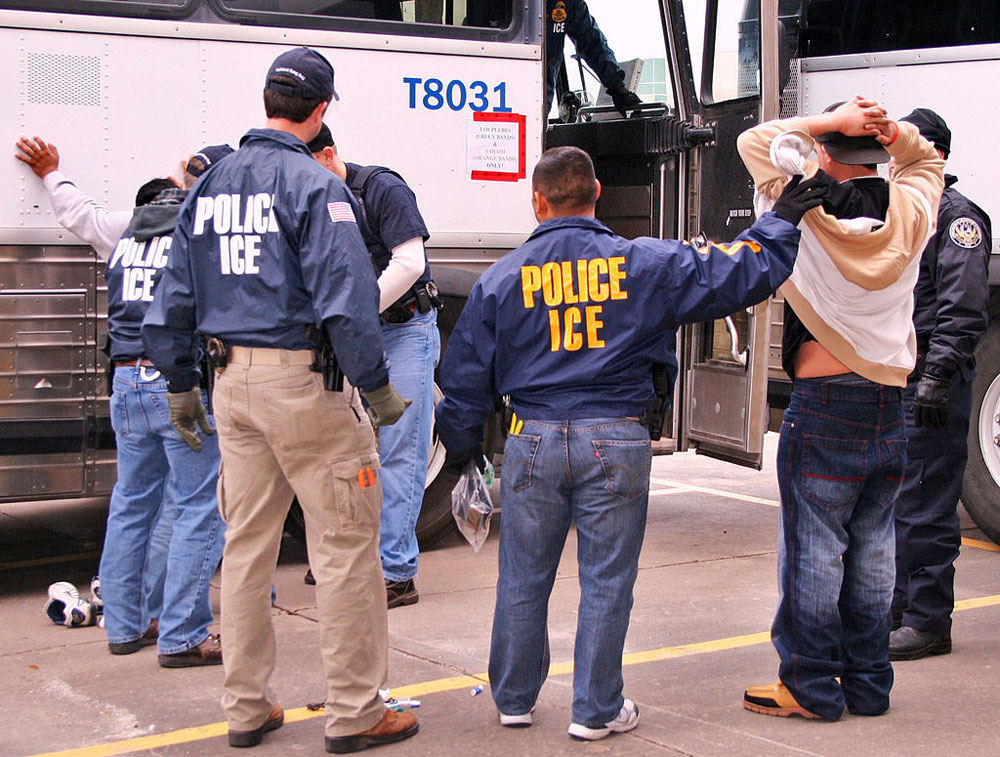
The Trump administration, at great human cost, continues to make administrative changes to our immigration system that it cannot get enacted legislatively. Two recently proposed rule changes—one affecting undocumented residents and one affecting asylum seekers—limit the right of those seeking to enter and stay in the United States. Each takes away an opportunity to have their cases considered on their merits by an impartial arbiter. Each is another step toward the administration’s goal of limiting immigration, particularly of poor people of color.
One change would expand the process of “expedited removal” that empowers immigration officials to arrest and deport undocumented residents without a court hearing. Currently, this is permissible only when apprehensions are made within 100 miles of the US border—which includes the coastline—and those individuals detained have been in the US for less than two weeks. The administration hopes to make “expedited removal” happen nationwide and open the pool of potential targets to include those who have been resident two years or less. Further, the onus would fall on the detained individual to prove they had been resident for more than two years. While facing immediate deportation and without the luxury of being heard before the court, they’d have to produce documentation and find a way to get it heard by an authority that’s empowered to act.
Although most unauthorized immigrants have lived in the US for more than a decade, putting them outside the grasp of expedited removal, that doesn’t make the prospect any less frightening. As Sarah Pierce, an analyst at the Migration Policy Institute, told BuzzFeed, “The expedited removal proposal would likely do more to instill fear in the immigrant community than profoundly alter the deportation process within the US.”
The other proposed change would make it almost impossible to have a request for asylum considered on its merits. Under the new rules, anyone who has traveled through another country before reaching our borders would be required to request asylum in that country first. Otherwise, the individual will be barred from making a claim for asylum in the US. This means, for example, any non-Mexican trying to make an asylum request on the Mexican border will have their claim rejected, irrespective of the reality they are fleeing in their home country.
Sign up for our free newsletters
Subscribe to NPQ's newsletters to have our top stories delivered directly to your inbox.
By signing up, you agree to our privacy policy and terms of use, and to receive messages from NPQ and our partners.
The pain of this change will be felt most poignantly by the hundreds of individuals and families who tried to follow the earlier rules, waiting in Mexico for the day their number would come up and they’d be permitted to officially request asylum. Now, because they are in Mexico, where they can request asylum, they can no longer request to enter the US. As ProPublica observed:
Those who decided against entering the US illegally are now paying a price for having followed the rules. Had they simply crossed into the US illegally when they arrived, they would have had their asylum claims heard under the rules in place at that time. But by choosing to wait to set foot on US soil and trigger their asylum rights, they’ll now be subjected to the new regulation once they do enter—a rule which renders most of them ineligible.
Ryan Krause, a human rights observer with the advocacy organization Al Otro Lado, described the human toll on those who followed the rules. “You travel from Africa through 10 countries, through the jungles of Panama, many people got robbed or their friends were killed along the way, people narrowly escaped death themselves—they’ve been through horrible travails and incredibly arduous journey, people aren’t going to be easily shaken by this process here.”
Krause fears that because those who enter illegally are still able to get their asylum request heard when arrested, those now stranded in Mexico will choose to try cross the border anyway. Making the situation even worse, the US government severely restricted the number of individuals who are allowed to make asylum claims in the days immediately preceding the new rule’s announcement.
While the courts consider the legality of each rule change, immigrants’ lives are made less secure and more dangerous. With each new proposal that raises barriers to entry and increases the harshness of our treatment of newcomers, our position as a beacon of hope and humanity diminishes. Policies can be reversed more easily than changes to culture and reputation. That’s the price we’ll all be asked to pay, long after this administration leaves office.—Martin Levine













